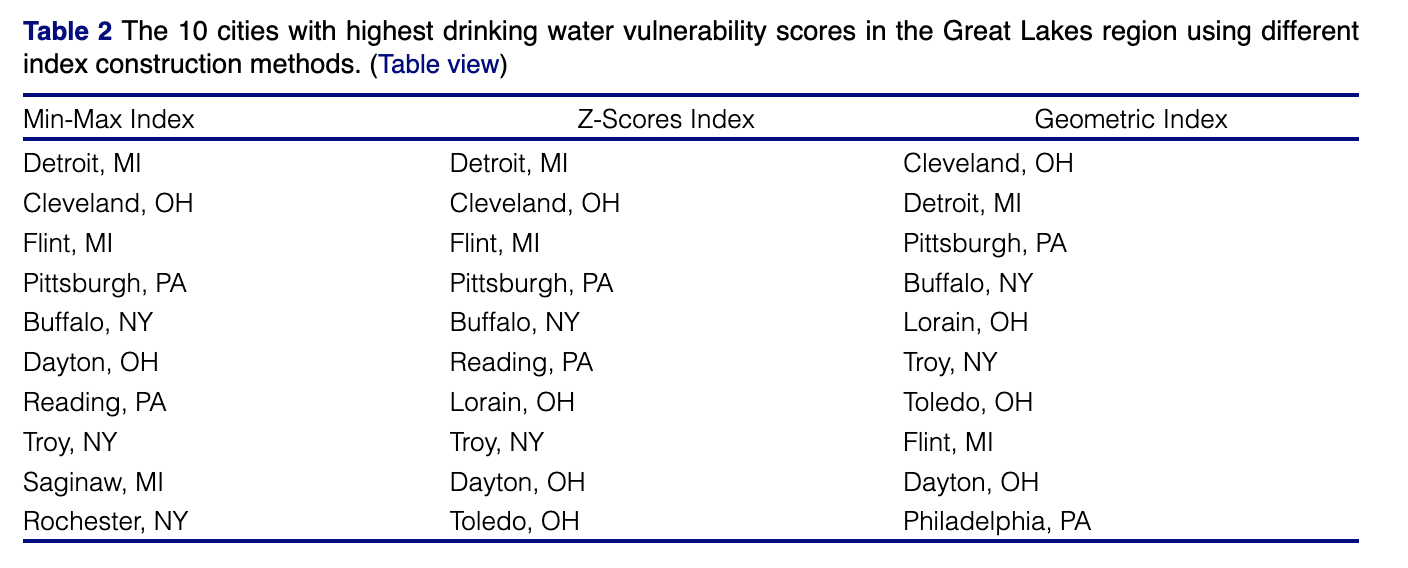New Drinking Water Vulnerability Index
Drinking water systems are central to public health, strong communities, economic development, and a healthy environment.
Drinking water management tends to rely on regulatory monitoring and compliance, but safe and affordable drinking water systems are a product of local social, financial, and environmental conditions.
We develop an index of drinking water vulnerability that incorporates local financial, environmental, and social system characteristics and apply it to the Great Lakes region, an area grappling with pressing drinking water challenges. Using publicly available data, we calculate drinking water sustainability measures for 118 cities in the region. Scores vary significantly by race and between states. Cities in the region have low scores for a variety of reasons, underscoring the importance of understanding the multiple dimensions of sustainable drinking water systems. The index provides new, policy-relevant information about drinking water system sustainability for scholars, decision makers, and stakeholders. The index and methods were published in the Journal of Environmental Policy & Planning.
Below is a table showing the 10 cities in the Great Lakes that have the highest vulnerability score using our measure:

